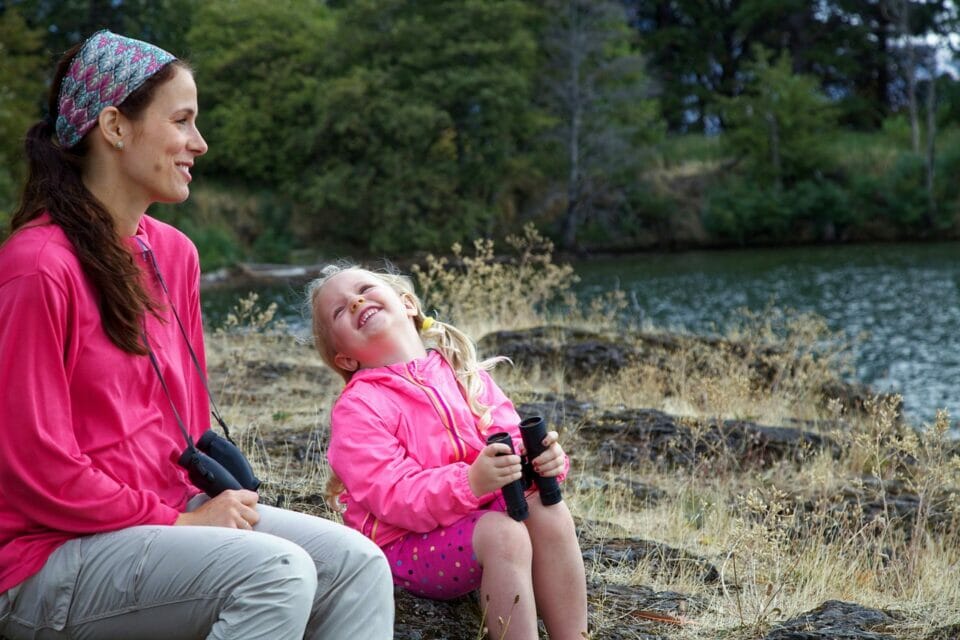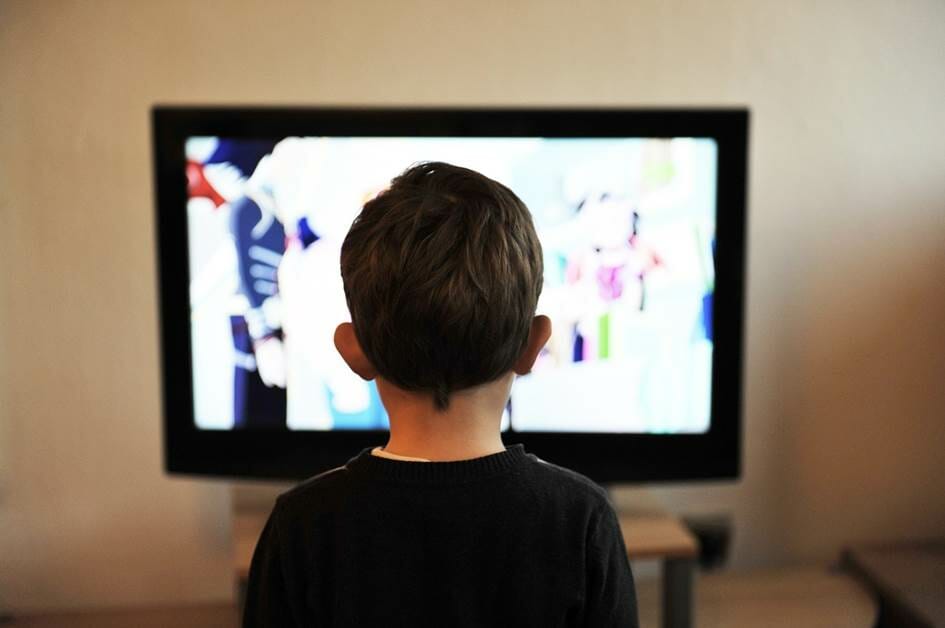
Parenting is one of the most important and difficult things we’ll ever do in life. And it becomes even harder when we doubt ourselves and stop trusting our own judgment. When others try to impose their methods of parenting on us, and we let it affect us, we have an even greater challenge.
I was lucky to start my parenting journey when our close friends didn’t have children and our family was too far away. Until our daughter Eden was 14 months old, Gal and I relied solely on our own judgment. We had no Internet and no people telling us what to do.
Eden was born after I finished most of my education studies. Although my course didn’t cover things like the best time to feed babies, or when to start giving solid food, it did help me build the confidence to raise her.
Eden was the perfect baby, but I had a severe infection with high fever from the delivery and couldn’t breastfeed. After 10 days in the hospital, we finally took her home and I was told I no longer had breast milk.
I was determined to try anyway.
She ended up breastfeeding like clockwork every 4 hours and slept the whole night from around 3 months of age. She started crawling, standing and speaking early. She was just amazing!
Sometimes, I think she was like that because we started parenting without other people’s judgment.
The justification engine
As humans, we all have a justification engine that activates the second we choose to do something. It turns on, and we’ll do anything to justify what we did or said (or didn’t do or didn’t say). We even use it to justify things we know are bad.
Every person on earth does this. We all come up with stories to justify our actions. It’s a good mechanism, because it helps us live with ourselves better. Without it, we would be miserable.
This mechanism works full tilt when talking to people about raising children. I do the same thing. This whole blog is me writing my own justification for the things I do and why I do them.
That’s not a problem at all! The problem is when a person tries to impose their own justification on others. The problem is not that we justify, because that’s human. The problem is when we think our way is “the right way”!
Because it’s not!
Find your own parenting way

What works for one parent may not work for another. I dare say that even what works for one child may not work for another child, even within the same family.
Why?
Because there is no “one size fits all” method, and there is no formula for “the right parenting”. We all need to create our own formula and be confident about it. This is really what our children get from us – confidence in ourselves, our values and our philosophy.
If you’re familiar with this blog, you know I advocate for you to define your own parenting “right” and “wrong” in and match them to who you are. I share what worked, or didn’t work, for me. I share my way, but ask that every reader find their own.
Family justification can be blessing or a curse
In the world today, I’m aware of many new and existing mums and dads being very confused about parenting because they are unsure how to use their own judgment.
Parenting is generally even more difficult when your own family is sending you contradicting messages to what you believe or what society believes now.
You see, when I was a baby, the optimal time to start toilet training was in the summer closest to the first birthday. This is exactly what I did with my oldest daughter.
At this young age, the kids continue to have “accidents” for another 12-18 months. This increases everyone’s stress levels, but I thought it had to be done. After all, everyone else, including family and friends, did the same. So, I never questioned it.
Later, we lived in Texas, USA, and I worked at a day care center. The kids there were toilet-trained after they were 3 years old. It only took one or two weeks and went smoothly. Amazing!
It was so easy that when my son was born, I didn’t even ask myself what the right thing to do was. I just followed what worked. I looked at the many kids at the day care center and said to myself, “I like it. I will try it too”, and that’s what I did. My son was out of diapers in one week. I loved it!
When My youngest daughter was born 6 years later, we had no doubt it would work for us and we followed the same “formula”. We were very confident, and when someone doubted our decision, we said, “It’s worked for us before. We’re going to do it again”.
How do you decide if it’s right to start solids with fruits and rice or cereal and vegetables if every year, society changes its mind about what’s right?
How can you tell if you should feed your baby every time he or she cries (on demand) or on schedule if every person thinks differently about it?
I could go on. But the answer to every single question is that you can’t. You have to find out what works for you!
Raising socially incompetent children

As I mentioned before, I feel incredibly lucky that for most of our kids’ childhoods, Gal and I could rely on our own judgment.
Many years ago, I decided I didn’t want my children to be addicted to television. I grew up in a society that was addicted and didn’t like it.
So, when Gal and I moved in together, we had no TV at home. For many years, my kids couldn’t watch TV and couldn’t play computer games, because we just didn’t have them.
We went to the cinema to watch all the children’s movies with them. Later, we got a TV and a VCR and watched videos (and then DVD’s) with them. But generally, the TV in our home was hardly used.
This earned us a lot of criticism from friends and family. They said we were raising socially incompetent children. Each side, of course, had its own justification.
We had many unpleasant conversations about it, which always ended with “live and let live” or “I don’t tell you how to raise your kids, so don’t tell me how to raise mine”. Still, no matter how nice we tried to be, we were all full of judgment.
Sometime in 2007, Gal and I traveled overseas to see our family for five weeks. Eden was about 20 years old, Tsoof was 13, and Noff was 7. Eden was busy meeting friends and Gal and I left the two youngest with my parents and went to meet with some friends.
We came back after midnight and saw my parents and the kids watching TV. The show was called “Polygraph”, where couples who were suspected of cheating were strapped to a lie detector and interviewed.

We were shocked and I asked, “They’re supposed to be in bed. Why are you watching some things with them?” My mom said, “Come on, Ronit, don’t bury your head in the sand. This is part of life. It’s part of the reality. They can learn from it”.
I started to explain that I nourish their body and mind and I do all I can so cheating wouldn’t be part of their life, but quickly gave up. Her justification engine was on and so was mine, and there was no point to continue. I couldn’t change her mind and she couldn’t change mine, so I stopped.
I was very upset. I put the kids to bed and said to myself, “OK, hang on for 4 more weeks. I can’t control what they watch here for the next 4 weeks. I’ll suck it up and move on”.
3 days later, I went to visit my sister and she asked me, “What do you have against watching TV?” I tried to explain. But after 10 long minutes of being told my kids were going to be socially awkward, I gave up.
A week later, I went to visit another relative who lived on a farm. The same thing happened. She told me that I wasn’t a good mother and that I would cripple my children socially, because they wouldn’t know all the names of the Pokémon characters. “No one will want to play with them”, she said.
For 4 weeks after the first incident with my parents, every family member I met told me something about how inadequate I was for not allowing my children to watch TV.
My conclusion was this: Part of the reason I have wonderful kids is because I raised them away from this social pressure. We were confident in our values because we didn’t have anyone close to judge us and doubt our actions. If we had lived closer to my family, after explaining and explaining and trying to justify my own values, thoughts and philosophy, I would have given up and allowed my children to watch TV, just to make it stop.
We lived with this pressure for the duration of the trip (around 5 weeks). We knew that once we got home, we would go back to playing, reading, playing music, cooking, gardening and dancing, instead of watching TV. But I’m not sure I could have survived it if the trip had been much longer.
When you choose to do something so different from what others choose to do, they see it as a threat. So, they turn on their justification engine and try to convince you to change your ways.
There is no logic, no common sense, no respect and no kindness. Just pure pressure to get you to make the same choices they’ve made. If you decide because of pressure, it’s not your choice!
In parenting, this is the formula for disaster!
Do what works for you!

What matters is not “eating solids at 6 months or 10 months”. It’s your confidence about doing what works for you and applying your own judgment.
Remember that other people’s opinions are theirs. Make your own mind up!
What other people say comes from their experience. It’s an option to consider. If they put pressure on you and tell you how inadequate you are, you have proof they are not confident in their choices. If they were, they wouldn’t try to pressure you to do the same.
It’s not a good option to consider.
Watching TV once a week in a family setting worked for me. I loved how my kids grew up. They are now healthy, smart, creative and kind to each other. They help, have hobbies, have friends and are very social creatures.
What you choose to do with your children only needs to work for you and for them!
Happy parenting :)
Ronit











